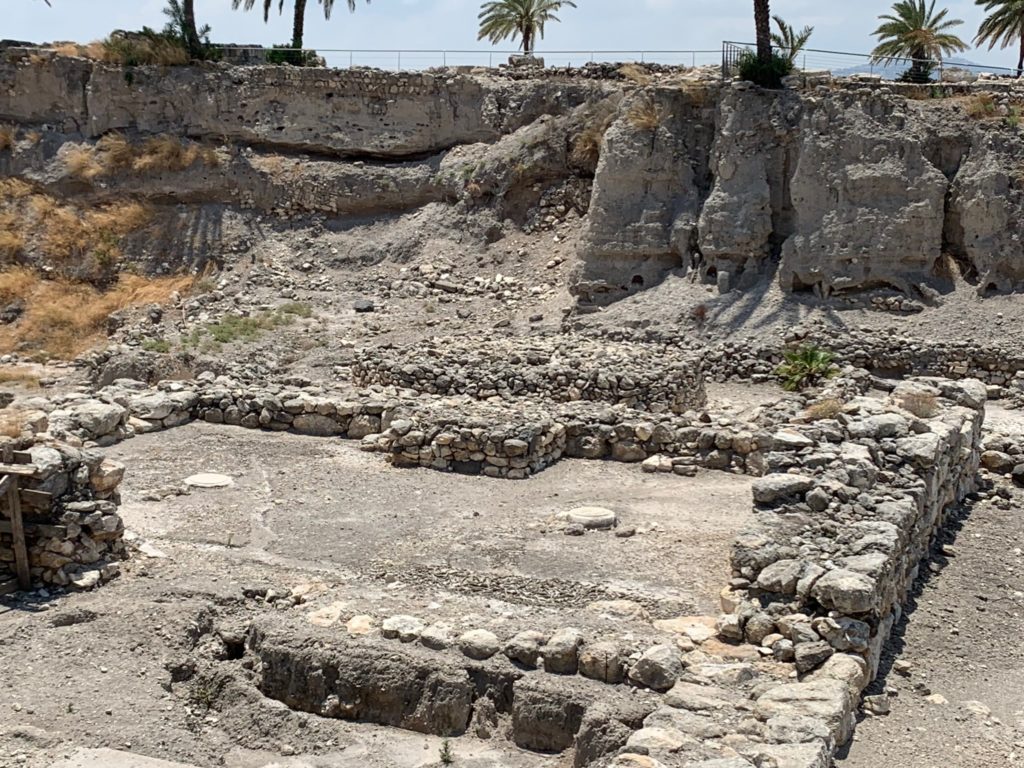“Do not cook a young goat in it’s mother’s milk.” (Exodus 23:19 NIV)
God’s law is not arbitrary. Quite the opposite. It is purposeful and poignant. So what is going on with this scripture?
It seems likely that this a baby-goat-milk-boiling instruction law against pagan practice. It feels like a cruel and dis-compassionate act; boiling a baby goat in it’s mother’s milk. It is most certainly a violation of the parent-child relationship. Additionally, it breaks kosher law; dairy and meat are stored, handled and served separately. Scholars have found that the kid-boiled milk was sprinkled on fields in the fall to bring about fertility of the soil, speaking of an appeasement to a lesser spiritual entity.
I think back about my time in Israel. The battle between pagan religions and the one true God is still evident. Ancient ruins like Tel Megiddo and Caesara Philippi document the story of the struggle for people’s divine loyalty. The ‘high places’ silently scream of their child sacrifices.

So does this scripture pertain to us today?
I see two potential applications, neither one popular. This scripture solidifies the sanctity of the parent-child relationship. Secondly, there’s clear instruction for a stubborn refusal to participate in pagan-like practices.

Sanctity of parent-child relationship reminds us that mother’s milk is a means to sustain, not destroy. Similarly, the womb was designed to be a safe place for an unborn child. The mother’s uterus is meant to hold sweet and secret mystery, where God alone knits together, not a place for the destroyer to tear apart and cruelly dispose. Beyond the abortion issue, the parent child relationship remains a sacred endowment. We are called to nurture and protect our young, to treasure and educate, not neglect or abuse. Yet, in current society, so many of our children have been abandoned or abused by one or more parents. We have culturally lost sight of the joy and privilege of parenting.
Secondly, the text remind us to reconsider our set-apartness from pagan culture. Growing up, it was relatively easy to distinguish believing people from unbelieving people. Believers behavior varied greatly from the general public. You knew of our faith by our dress, our recreation, our articulation. Our commitment to God’s word was palpable. Yet, in a revolt against religiosity, we’ve moved away from such outward holiness, waving the grace-card and perhaps picking up the habits of the pagans. Essentially, we’ve begun boiling baby goats in their mother’s milk.
“Love the Lord your God with all your heart and with all your soul and with all your strength. These commandments I give you are to be on your hearts. Imrpress them on your children. Talk about them when you sit at home and when you lie down and when you get up. Tie them as symbols on your hands and bind them on your foreheads. Write them on the doorframes of your houses and on your gates.” (Deuteronomy 6:5-9 NIV)
So what are the keeping points from today’s devotional? Value the parent privilege and guard against pagan practices. These two ideals are essential to us as believers. We walk and worship differently than the world.
Lord, help us to love You most. May our desire for right relationship with You eclipse all other desires. May we be willing to set aside worldly practices and weaknesses in order to fully follow You. Help us honor our parent-child bond; in both human and divine interactions. We value the life You’ve entrusted to us. May we live according to Your Word, not the world. Help us be set apart for Your purposes.